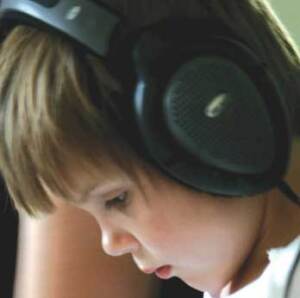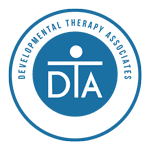
Who Can Benefit from Therapeutic Listening?
Individuals with:
- Poor attention
- Difficulties interacting with peers and limited play skills
- Challenges with transitions or changes in routine
- Difficulty communicating (both verbal and non-verbal)
- Struggles with sleep, bowel and bladder control, and eating
- Trouble following directions
- Challenges perceiving and navigating space
- Poor timing and sequencing of motor skills
- Abnormal responses to various sensory stimuli (sounds, touch, taste, pain)
How Does Therapeutic Listening Work?
Music for this program covers a broad range of genres including classical music, children’s music, pop music, nature sounds, jazz, instrumental, and vocal. Therapeutic listening uses modulated music, which refers to re-recording composed music with the use of specialized filters. These filters allow only specifically targeted frequencies to pass through the inner ear system at a time, and as the music switches between high and low filtered music, it creates what sounds like subtle volume changes. The active changes you hear while listening to the modulated music become essentially a “work out” for the stapedius muscle within the inner ear, which is responsible for active listening. Since all of the middle frequencies are removed from the music, the stapedius muscle is constantly contracting and releasing while listening. Your trained therapist will choose music selections with higher tones (i.e. violin, piano) to impact attention, emotion, and cognition and choose music with lower tones (i.e. drums, guitar) to promote grounding and activate and organize motor systems.
How Is Therapeutic Listening Delivered?
Therapeutic Listening is delivered through the Vital Links app-based platform which is available on iOS and Android devices. Specialized headphones are required and are offered for rental through DTA. This program is often used in the clinic during an OT session and at home as part of a home based sensory diet and home program. Listening should be done two times per day for 30 minutes, 7 days a week. Typically, each album is listened to for about 2 weeks depending on the client’s response.
Contraindications
- Schizophrenia
- Auditory-evoked Seizures
- Tic Disorders
- Active Ear Infections
